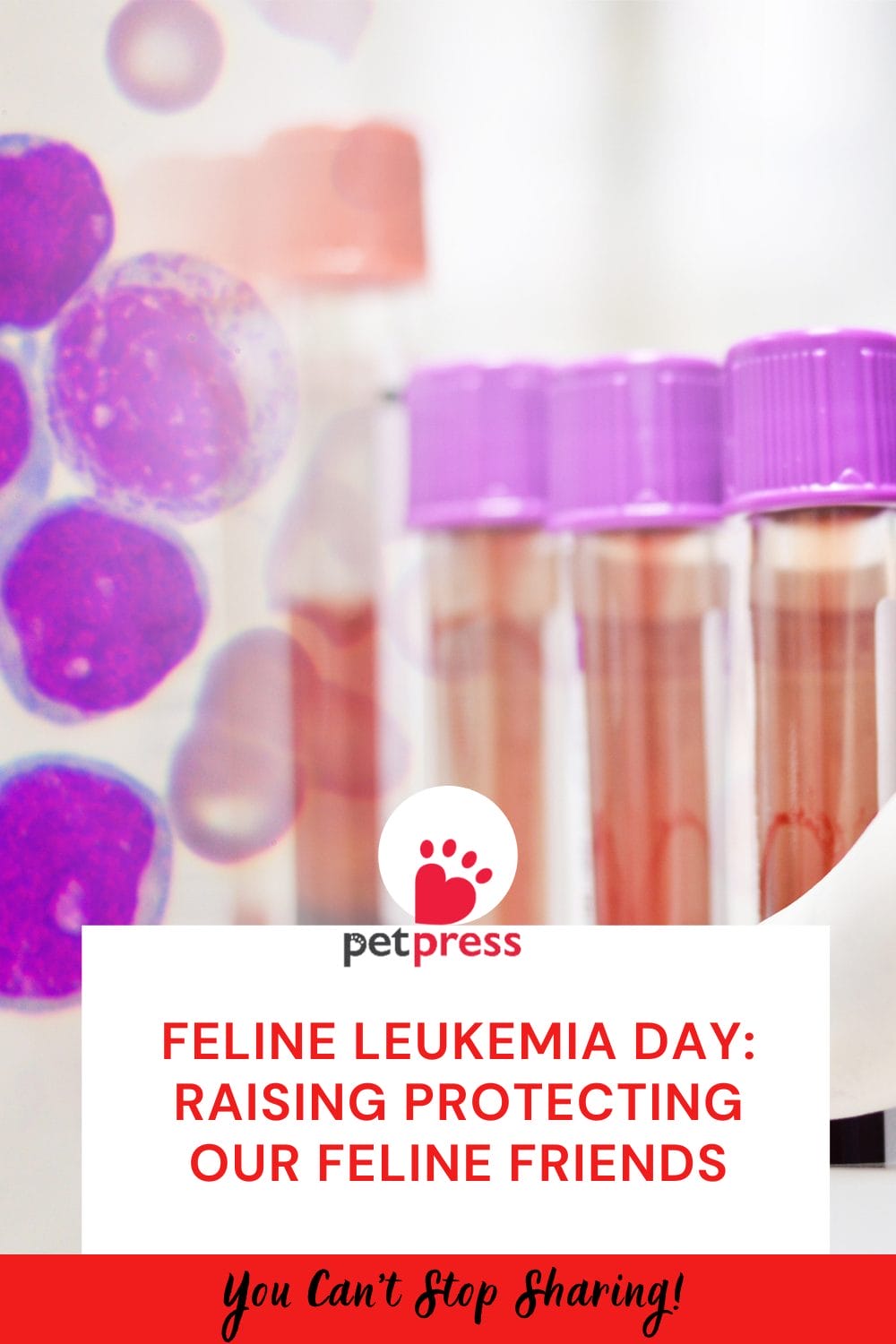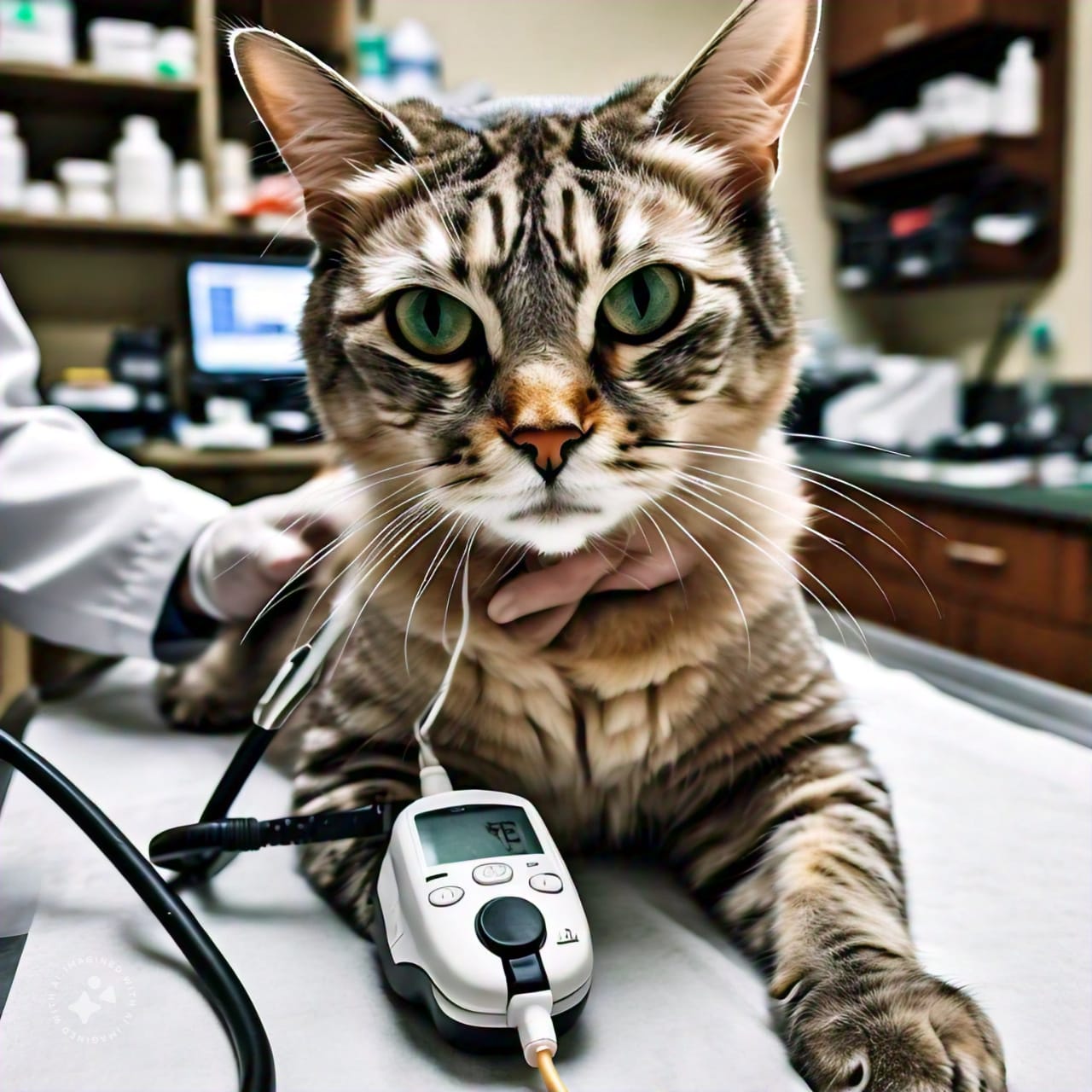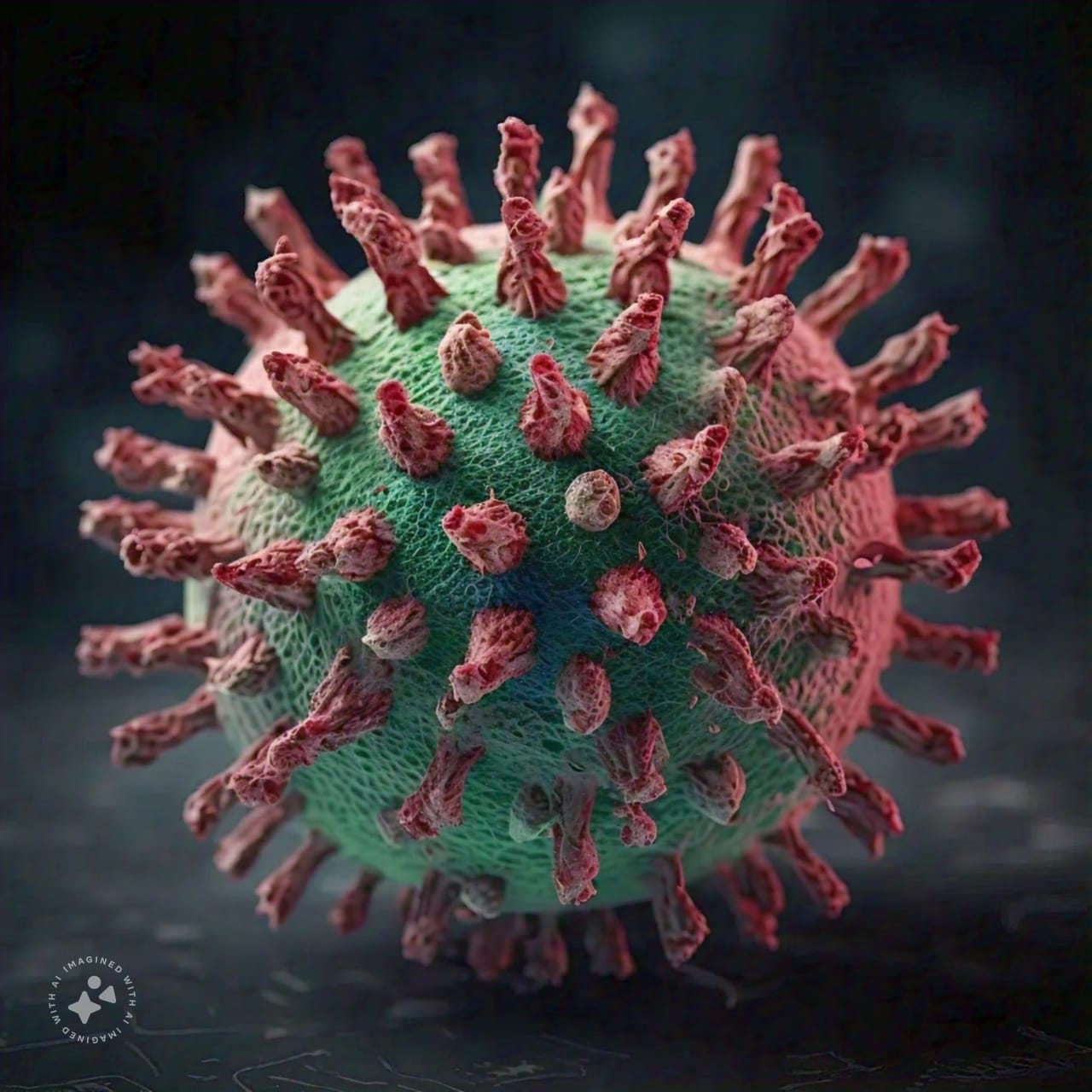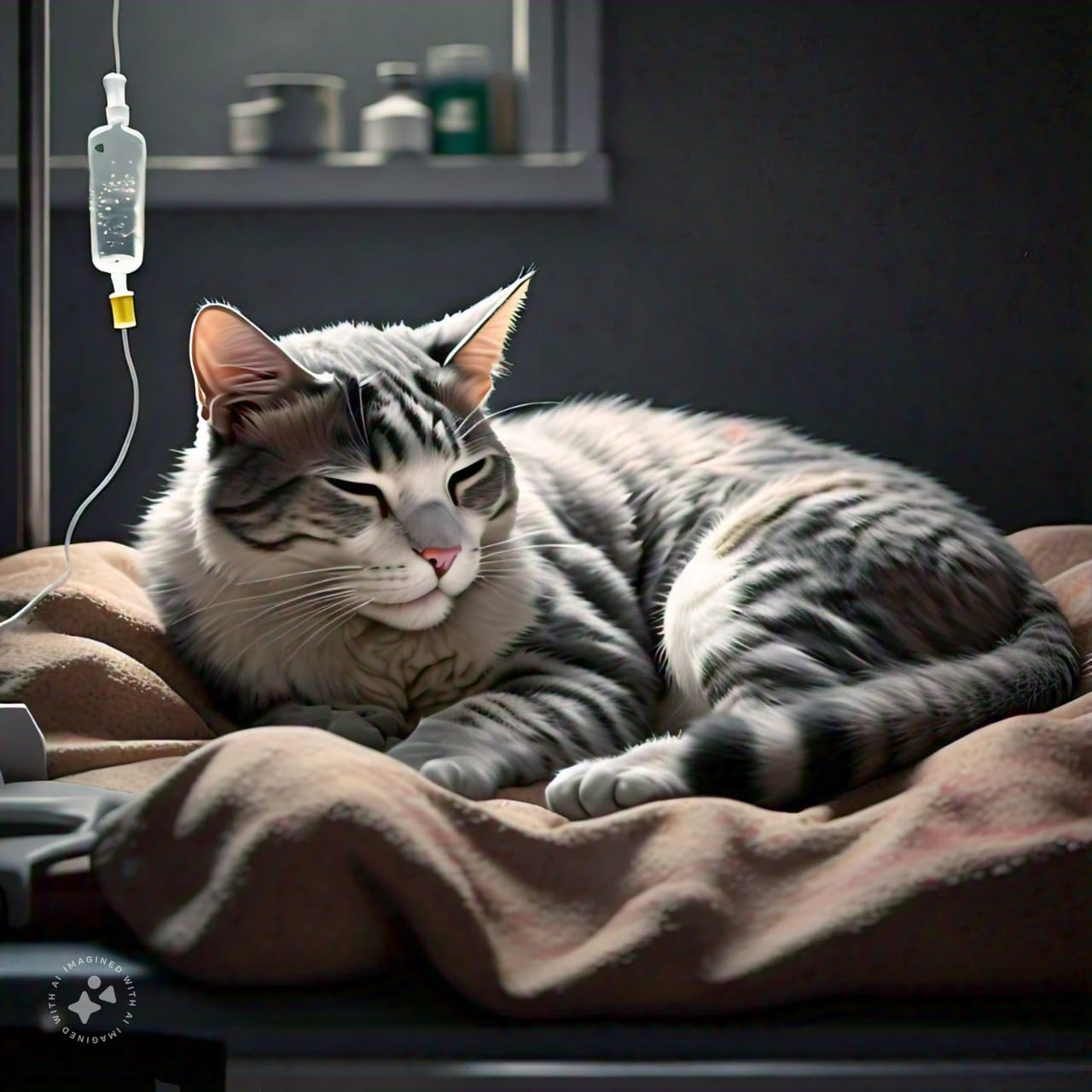
Welcome to Feline Leukemia Day, a dedicated occasion to raise awareness about the disease and take necessary steps to protect our furry companions.
Feline leukaemia is a viral disease that affects cats worldwide. It can have severe consequences on their health and longevity.
By understanding the history, significance, prevention methods, and essential considerations related to feline leukemia, we can ensure the well-being of our beloved feline friends.
History of Feline Leukemia
This, also known as FeLV, was first discovered in the early 1960s. The leukemia virus causes it, primarily affecting domestic cats.
Infected cats primarily transmit the virus through close contact, such as saliva, nasal secretions, urine, and feces.
Kittens can contract the virus from their infected mothers during pregnancy, birth, or nursing.
Since its discovery, extensive research has been conducted to understand the virus and develop preventive measures.
The veterinary community, along with cat lovers and organizations, has played a crucial role in spreading awareness about leukemia and advocating for its prevention.
Significance of Feline Leukemia Day

The Day holds immense significance in promoting awareness and education about this disease.
The day serves as a reminder to cat owners and enthusiasts to take proactive measures to protect their feline friends.
By observing this day, we can:
Raise Awareness
The Day creates an opportunity to educate cat owners, veterinarians, and the general public about the prevalence, transmission, and potential consequences of leukemia.
Increased awareness leads to early detection, treatment, and prevention of the disease.
Encourage Testing
Regular testing for feline leukemia is crucial, especially for cats that have not been previously tested or are at a higher risk due to their environment or lifestyle.
Feline Leukemia Day encourages cat owners to schedule appointments with their veterinarians for testing and vaccination.
Promote Vaccination
Vaccination is an essential preventive measure against feline leukemia.
Feline Leukemia Day emphasises the importance of timely vaccination to protect cats from the virus. Vaccines have proven to be effective in preventing or reducing the severity of the disease.
Support Adoption and Shelters
Feline Leukemia Day also highlights the importance of responsible pet adoption.
Cats infected with feline leukemia require special care and attention.
Raising awareness can encourage people to consider adopting these cats and provide them with a loving and supportive environment.
How to Prevent Feline Leukemia

Prevention plays a crucial role in safeguarding our feline companions from feline leukemia. Here are some essential measures to consider:
Vaccination
Consult with your veterinarian to determine the appropriate vaccination schedule for your cat. Vaccines are available to prevent feline leukemia, and veterinarians recommend regular booster shots for optimal protection.
Testing
If you have a new cat or are unsure of your cat’s feline leukemia status, schedule a test with your veterinarian. Early detection allows for timely intervention and appropriate care.
Indoor Living
Keeping your cat indoors significantly reduces the risk of exposure to feline leukemia. Indoor cats have limited contact with infected cats and are less likely to contract the virus.
Separate Infected Cats
If one of your cats is diagnosed with feline leukemia and you have multiple cats, separating the infected cat from the healthy ones is crucial.
This helps prevent the transmission of the virus and ensures the well-being of all cats.
Hygiene and Cleanliness
Maintain a clean and hygienic living environment for your cats. Regularly clean litter boxes, food bowls, and bedding.
Disinfect surfaces to minimize the risk of feline leukemia transmission.
What to Keep in Mind
While taking preventive measures is crucial, it is essential to keep in mind the following considerations:
Education and Awareness
Stay informed about the disease, its symptoms, and preventive measures. Educate yourself and others to promote responsible cat ownership.
Rescue and Adoption
If you plan to adopt a cat, consider adopting from reputable organizations that conduct thorough health screenings and provide vaccinated cats.
Symptom Awareness
Be vigilant and observe any changes in your cat’s behavior, appetite, or overall health. Early detection of symptoms can lead to prompt medical attention.
Support and Resources
Reach out to local veterinary clinics, animal welfare organizations, or online communities for support, resources, and guidance on leukemia prevention and management.
Spread the Word
Use this Day as an opportunity to spread awareness on social media, in your community, or among fellow cat owners. Please encourage others to take preventive measures and protect their feline companions.

Conclusion
Feline Leukemia Day serves as a powerful reminder of the importance of protecting our feline friends from this devastating disease.
By raising awareness, promoting preventive measures, and supporting infected cats, we can significantly reduce the prevalence of leukemia.
Remember, vaccination, regular testing, and responsible pet ownership are key to preventing the transmission and progression of the virus.
By following these guidelines, we can create a safe and healthy environment for our beloved cats.
On this Feline Leukemia Day, let us come together to spread awareness, support research, and advocate for the well-being of our feline companions.
Together, we can make a difference and ensure a brighter, healthier future for cats everywhere.
Frequently Asked Questions
A1: Unfortunately, there is no cure for feline leukemia. However, supportive care, early detection, and appropriate treatment can help manage the symptoms and improve the quality of life for infected cats.
No, this cannot be transmitted to humans. It is a disease that exclusively affects cats.
While all cats are at some risk, outdoor cats, cats with unknown vaccination status, and those in contact with infected cats are at higher risk. Indoor cats have a significantly lower risk of contracting the virus.
Cats diagnosed with this disease should be kept separate from other cats to prevent transmission. It is important to consult with your veterinarian for guidance on managing a multi-cat household with a feline leukaemia-positive cat.
Vaccination significantly reduces the risk of leukemia but does not guarantee full protection. Vaccinated cats may still contract the virus; however, the severity of the disease is often reduced.
- Dogs Pooping Blood: A 2026 Guide for Concerned Pet Parents - February 23, 2026
- How to Celebrate a Dog’s First Birthday on a Budget: 2026 Guide - February 18, 2026
- Best Shampoo for Sensitive Skin Dog Grooming: 2026 Guide - February 12, 2026


GIPHY App Key not set. Please check settings